One of the features of this year’s Venice Film Festival is the presence of several very different television series. Alongside the ten episodes of Rodrigo Sorogoyen‘s The New Years and the seven of Thomas Vinterberg‘s Families Like Ours, the most anticipated has undoubtedly been Alfonso Cuarón’s Disclaimer, the first to be presented at the Lido during the first days of the festival. Written and directed by the Mexican director (winner of the Golden Lion in 2018 with his latest film Roma), this seven-episode series is inspired by the novel by Renée Knight and features all the characteristics of quality, elegance and refined style that distinguish many of Apple’s productions, designed for its Apple TV platform, where Cuarón’s work will premiere on November 11 with a weekly episode.
“Any reference to real people or events is not purely coincidental.” So begins The Perfect Stranger, the novel at the center of the stories told in Disclaimer. The disclaimer of The Perfect Stranger bluntly anticipates the central theme of the series: the relationship between reality and fiction, between the peculiarities of a “lived life” and all its possible interpretations and semanticizations. Cate Blanchett plays Catherine, a successful journalist who one day discovers that she is the center of the mysterious novel in the series. The text has been self-published under a pseudonym by someone trying to hide his identity. In addition, a former professor named Stephen (Kevin Kline) holds a deep grudge against Catherine for a tragic event that occurred many years earlier. Throughout the miniseries, the “truth” of what happened becomes increasingly uncertain and nebulous, causing numerous conflicts in the relationship between Catherine and her family, consisting of her husband Robert (Sacha Baron Cohen) and son Nicholas (Kodi Smit-McPhee).

Leila George D’Onofrio and Louis Partridge in Disclaimer. © Apple TV.
Cuarón’s series, constructed almost like a literary tale that follows the fictional and real avatars of the main characters, both in the present (set in London) and in the past, masterfully describes the multiple points of view of each of them, often accompanied by a voice-over that reveals the thoughts and actions of the characters from the classic perspective of the narrator: captivating, but always unreliable. This makes the story only apparently objective, being in reality a continuous object of doubt about the veracity of what is told. Even in its structure, Cuarón’s work openly questions the concept of “truth”, gradually building a path that, as the episodes go by, deconstructs what is taken for real, concrete and tangible. In this sense, the character of Stephen (played with intensity and uneasiness by an impressive Kevin Kline) acts as an agent of chaos, determined to carry out his ruthless revenge against Catherine at all costs.
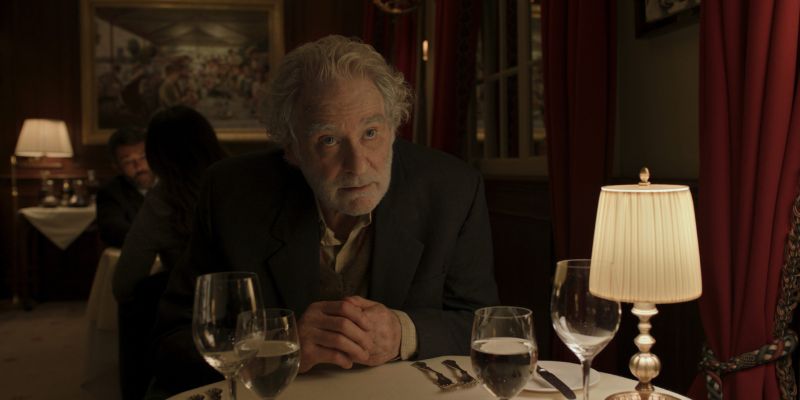
Kevin Kline in Disclaimer.
Catherine, for her part, lives a double existence, played respectively by Cate Blanchett—who, especially in the last episodes, proves once again to be one of the best actresses of this era— and by the amazing Leila George D’Onofrio, capable of showing a captivating sensuality in each of her scenes and starring in one of the most intense seduction sequences seen in cinema in recent years. Precisely, the flashbacks to a vacation in Italy (Venice and Forte dei Marmi, near Pisa), the incursions into the past that are cutting and also sexually explicit, constitute one of the many strengths of the series, which does not back down when the materiality on paper of The Perfect Stranger ends up transforming into pure imaginative reality. In addition, the central theme of Cuarón’s work is a profound analysis of the inability of human beings in today’s society to perceive, live and elaborate the difference between reality and the constant manipulation to which it is subjected by digital media. To these elements, which would already be enough to consider this series as one of the best in recent years, we can add a first class direction, a perfect cinematography that gives a different visual vitality to each character and an elaborate and always appropriate soundtrack by Finneas O’Connell.

Leila George D’Onofrio in Disclaimer. © Apple TV.
In the competition section, the feature films Campo di battaglia, by veteran Gianni Amelio, and The Order, by Australian Justin Kurzel, stood out in the last few days. Set in 1918, the year that marked the end of World War I, Amelio’s film moves away from the trenches to show the dramatic reality of the life and death of wounded Italian soldiers arriving from the front at the field hospital, to be treated and then sent home on disability, or else sent back to combat. Naturally, there are those who try in every way to avoid this second option, and their fate depends on the decisions of two doctors, divided by opposing conceptions of whether their duties as officers or as medical men should prevail. Stefano Zorzi (Alessandro Borghi), full of human compassion for the unfortunates who arrive at the hospital, even though they speak a dialect he does not even understand, understands their terror and their desire to escape the insane madness of war. His friend Giulio Farradi (Gabriel Montesi), on the other hand, is possessed by a fanatical patriotic fervor: for him, any soldier who voluntarily injures himself in an attempt to be discharged is a vile traitor.
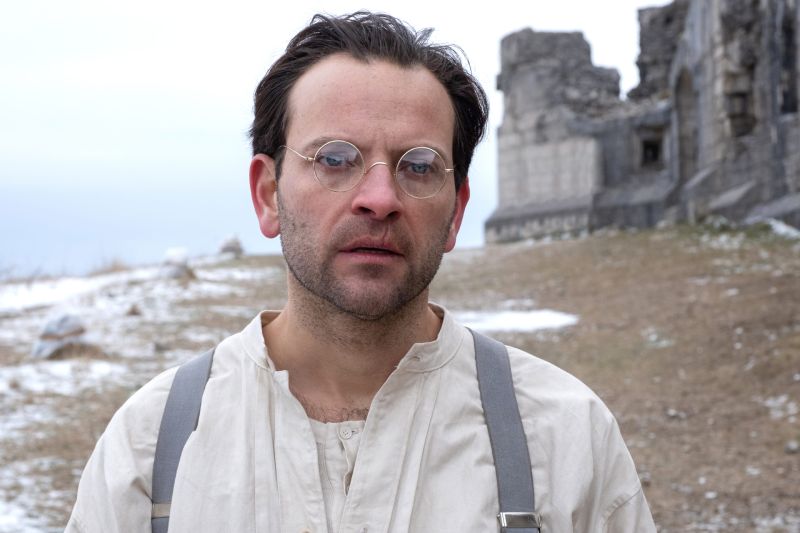
Alessandro Borghi in Campo di Bataglia.
The arrival of the Spanish flu epidemic complicates the general situation, as well as the relationships between the two main characters, both in love with the nurse Anna (Federica Rossellini). The Italian director’s work is rigorous, it does not show the front, the battlefield (despite the title) but what lies behind it, thus emphasizing how war is above all a story of human beings confronted with a tragedy of incalculable magnitude, capable of originating opposing positions, doubts, feelings difficult to express in words and acts sometimes far from reason.
However, Amelio manages to convey all this only occasionally, leaving us with a well-made feature film but which, as the film progresses, gives way to a too slow pace, which also generates a sense of coldness and artifice that becomes ever more tiresome and unattractive.
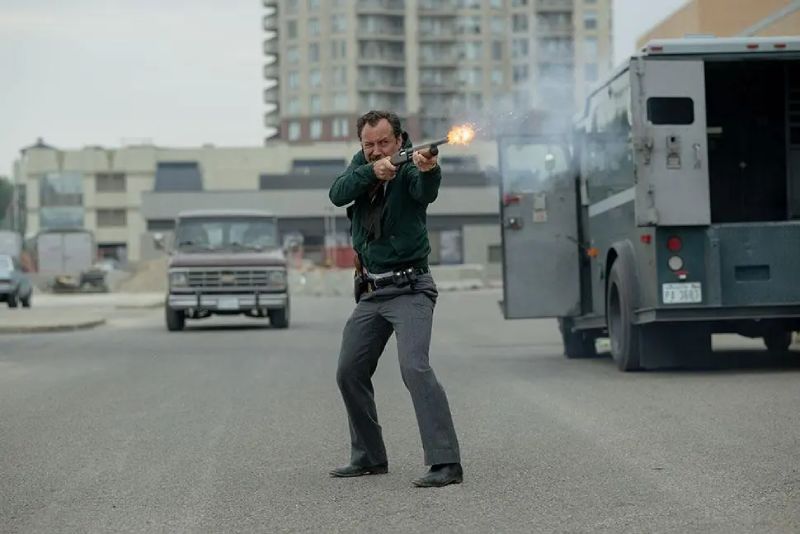
Jude Law in The Order.
In contrast, The Order is by no means slow, but is marked by a fast-paced narrative that is seamless at every turn. Based on the investigative book The Silent Brotherhood by journalists Kevin Flynn and Gay Gerhardt, the film follows the mid-1980s investigation into the far-right movements on the West Coast of the United States, between the states of California and Washington. A string of robberies and crimes culminating in the murder of Jewish journalist Alan Berg mobilized the FBI to investigate what turned out to be a real conspiracy attempt by a group of white supremacists, led by Bob Mathews, who were inspired by William Luther Pierce‘s dystopian novel The Turner Diaries. Kurzel’s film centers its story on agent Terry Husk, masterfully played by Jude Law, who, in collaboration with a young police officer (Tye Sheridan), manages to dismantle the organization and bring down Mathews, played by Nicholas Hoult.
Every shot of the film conveys, despite the pace of the crime thriller, a deep sense of unease, establishing a close relationship between the unease provoked by the ideological horrors of the movement led by Mathews, the almost nihilistic desire —the result of the obsessive dedication to work— that consumes Husk and those who get too close to him, and the beauty, almost sublime, of the nature that frames much of the story. Between mountains, pristine streams and the imposing figure of an elegant deer, which in all its majesty dominates the last image of the film.

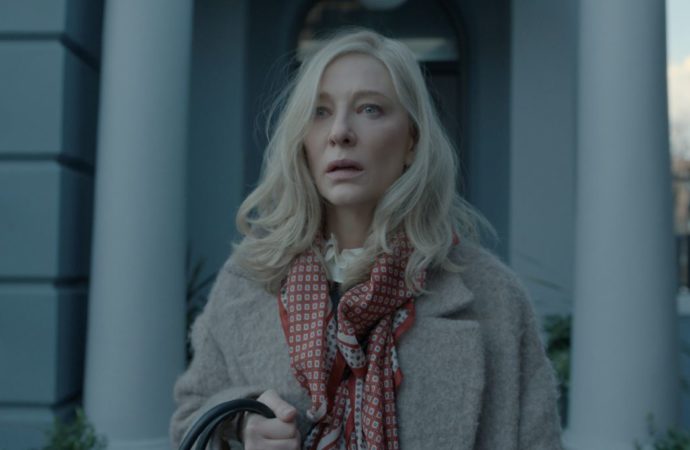

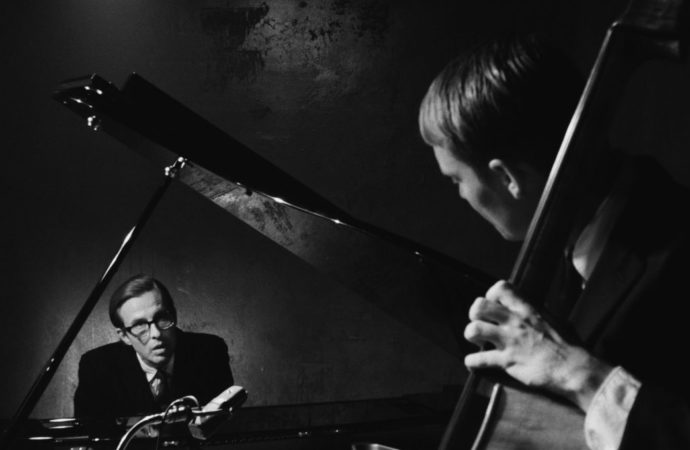
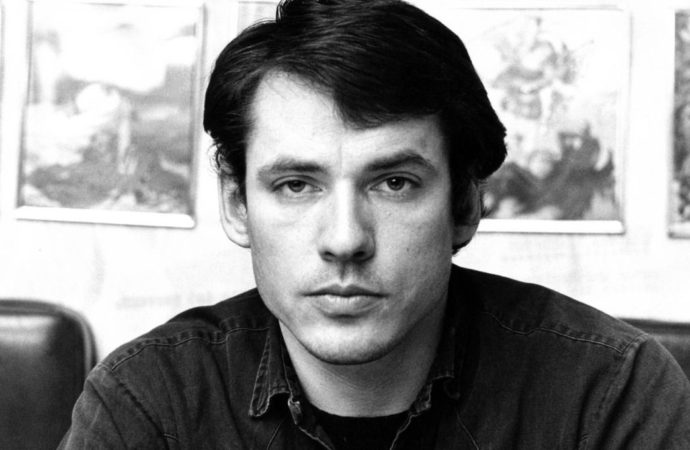




No one has posted any comments yet. Be the first person!